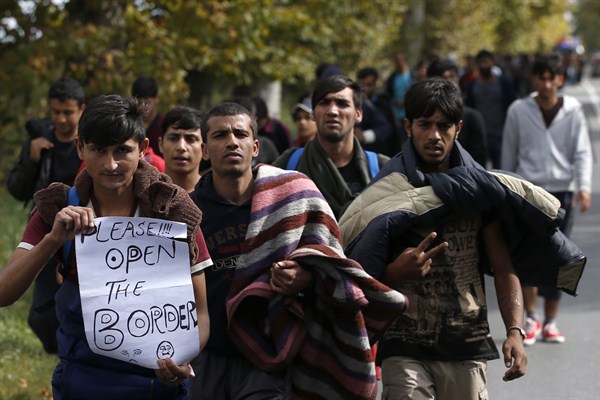Nero famously fiddled while Rome burned. When it comes to the European Union, its leaders don’t even bother to treat us to music. Confronted with multiple crises on fronts both external and domestic, they seem content to drift nonchalantly toward the abyss. The question is not so much whether the EU as we know it will survive; it is already irrevocably altered by Brexit. The question is whether the ideals that the union has historically championed will continue to have any relevance in today’s political landscape in Europe and the world.
The list of Europe’s many crises is well known, from the lingering effects of the financial crisis and its debt crisis offspring, to the ongoing refugee and migrant crisis. Over the past five years, the economic stress from the former began to feed the rise of far-right parties across Europe. The bite of economic contraction in the affected countries, and austerity-driven stagnation across the continent, stripped the EU of its protective mantle. Economic and political union no longer strengthened European economies and cushioned its people from the shocks of the global system, but rather exposed them to its vicissitudes. Worse still, the very demands of the EU’s central policy driver, Germany, delivered the sharpest blows, in the form of harsh austerity that in several countries condemned large parts of a generation to socio-economic marginalization.
The far right’s initial upswell was fed by the subsequent migrant crisis, which distilled all of its supporters’ greatest fears and anxieties into an easily marketable image: the foreign “other” introducing the world’s misery and violence into Europe’s midst. The sense of economic and social vulnerability that the financial crisis had awakened was now incarnated in the wave of migrants literally overrunning Europe’s shores and frontiers. That the refugee crisis coincided—and in some cases overlapped—with the worst terrorist attacks Europe has seen in decades only exacerbated the effect.

